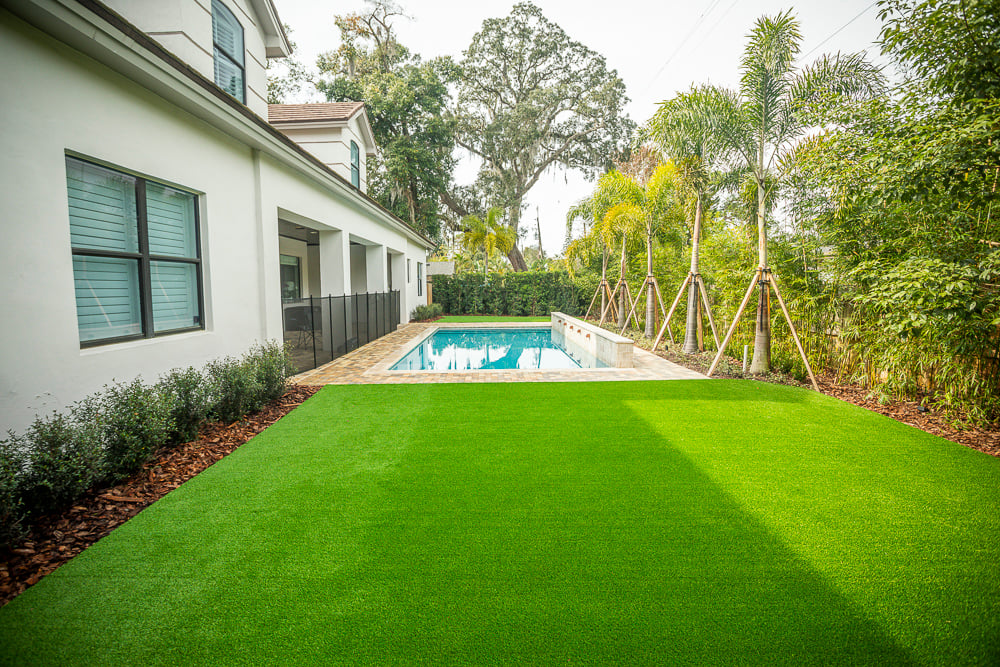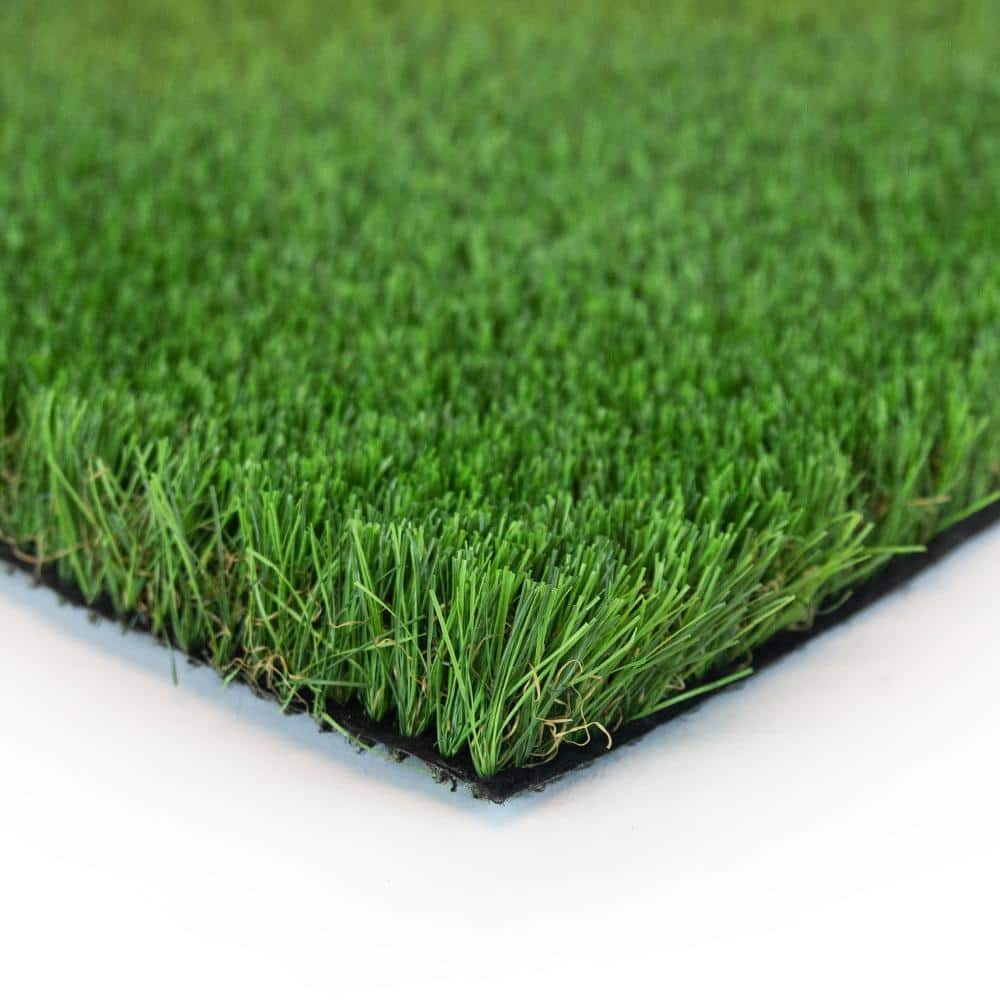Personalized Turf Installation Phoenix AZ for Residences, Businesses, and Recreational Spaces
Personalized Turf Installation Phoenix AZ for Residences, Businesses, and Recreational Spaces
Blog Article
Delve Into the Environmental Perks of Opting for Artificial Grass Solutions
The fostering of synthetic grass solutions offers a compelling chance to deal with pushing ecological difficulties. By substantially reducing water usage and lessening the application of unsafe chemicals, these alternatives not only promote lasting landscaping yet likewise shield regional communities. In addition, the reduced carbon impact associated with lowered upkeep activities adds to a more lasting strategy to land administration. The implications of these benefits expand past simple preservation initiatives, raising inquiries regarding their long-lasting effect on habitat conservation and total environmental equilibrium. Checking out these dimensions discloses an intricate interplay worth thinking about.
Water Preservation Perks
One of the most considerable advantages of synthetic grass is its capacity to save water. Standard yard lawns call for substantial irrigation, especially in locations vulnerable to dry spell or water limitations. In contrast, synthetic grass does not require watering, significantly reducing the general demand for water resources. This function is specifically useful in deserts where water shortage is a pressing concern.
By removing the demand for routine watering, synthetic grass adds to lasting landscape practices and helps alleviate the ecological influence of too much water consumption. The preservation of water extends to the reduction of drainage, which can lead to dirt disintegration and river contamination.
Furthermore, the setup of synthetic grass permits homeowners and towns to designate water resources much more effectively, focusing on crucial uses such as alcohol consumption water and farming. The change towards synthetic grass not only advertises accountable water use however likewise aligns with broader ecological goals targeted at maintaining all-natural sources.
As communities increasingly focus on sustainability, the water conservation benefits of synthetic lawn offer an engaging case for its fostering in business and residential landscaping jobs.
Reduced Chemical Usage
The change to man-made lawn significantly decreases the dependence on chemical therapies generally made use of in natural turf maintenance. Standard turf administration usually includes the application of plant foods, herbicides, and pesticides to advertise development and control parasites. These chemicals can position risks to human health and wellness, neighborhood wildlife, and the atmosphere, adding to dirt and water contamination.
In comparison, fabricated turf removes the demand for these hazardous substances. By reducing the launch of artificial compounds into the ecosystem, fabricated lawn advertises healthier dirt and water systems.
Additionally, the lack of chemical overflow related to synthetic grass installations assists secure local waterways from contamination, sustaining water life and keeping biodiversity. Phoenix turf companies. As communities progressively prioritize sustainable practices, opting for synthetic grass presents a sensible option that lines up with ecological preservation goals. With this change, homeowner can take pleasure in rich environment-friendly rooms without endangering eco-friendly health, paving the way for an extra lasting future
Reduced Carbon Footprint

In addition, the installment of synthetic grass can lead to substantial water conservation. All-natural grass call for substantial amounts of water for watering, which not only includes in the carbon footprint connected with water extraction and treatment yet also pressures regional water sources. On the other hand, synthetic turf requires marginal maintenance, needing no watering, therefore dramatically decreasing water usage and its associated energy expenses.
In addition, the durability of artificial turf contributes to its lower carbon influence. With a lifespan of approximately 15 years or more, the requirement for regular replacements is reduced, causing much less waste and reduced energy intake in manufacturing and disposing of standard lawn options. In general, fabricated grass offers a lasting choice for ecologically conscious landscape design.
Habitat Conservation
Habitat preservation is an essential factor to consider in the argument over landscaping options, particularly when comparing synthetic grass to natural yard. Natural grass lawns commonly call for substantial maintenance, consisting of using fertilizers, pesticides, and herbicides, which can negatively influence local ecosystems. These chemicals can seep into the soil and waterways, damaging indigenous plants and fauna and interrupting regional environments.
In comparison, fabricated turf provides check out this site an opportunity to minimize the ecological impact of landscaping. By going with artificial turf, homeowners can decrease the disturbance of natural environments related to traditional lawn treatment techniques. Synthetic grass gets rid of the demand for dangerous chemicals, thereby protecting nearby wildlife and keeping the honesty of bordering environments. Furthermore, the installment of artificial lawn can result in the conversion of former grass locations right into more biodiverse landscapes, such as pollinator yards or native plant locations, which can sustain neighborhood wildlife.
Eventually, the shift to synthetic grass not just saves water and reduces maintenance initiatives but likewise cultivates an extra unified relationship in between human activities and the natural surroundings, promoting environment conservation in the procedure.
Long-Term Sustainability
Long-lasting sustainability is an important consider reviewing the benefits of artificial turf over conventional yard yards. Among one of the most substantial advantages of synthetic grass is its toughness; it can last approximately 15-20 years with marginal upkeep, whereas all-natural turf Extra resources needs regular reseeding and substitute. This long life lowers the requirement for constant sources, such as water, fertilizers, and chemicals, which are necessary for preserving a healthy turf lawn.
In addition, synthetic grass adds to a decrease in carbon discharges connected with yard care tools. Standard grass commonly call for gas-powered mowers, leaners, and blowers, all of which add to air pollution. Turf installation phoenix az. On the other hand, synthetic grass eliminates the requirement for such tools, promoting a cleaner atmosphere
In addition, the production of synthetic grass progressively makes use of recycled materials, improving its sustainability account. As manufacturers embrace environmentally friendly techniques, the environmental impact of synthetic grass remains to reduce.

Final Thought
The adoption of synthetic grass services provides considerable environmental benefits, consisting of significant water preservation, decreased reliance on harmful chemicals, and a reduced carbon footprint. Synthetic lawn aids in protecting natural habitats by decreasing land disturbance and advertising long-term sustainability with the usage of resilient products. Collectively, these elements emphasize the potential of synthetic grass to add favorably to environmental wellness and provide a viable option to traditional landscaping techniques in a significantly resource-conscious world.
In comparison, artificial turf does not require watering, substantially decreasing the total demand for water resources. By decreasing the release of artificial compounds into the environment, artificial grass advertises healthier soil and water systems.
Moreover, the installment of artificial turf can result in considerable water conservation. In contrast, fabricated turf needs marginal maintenance, calling for no watering, thus dramatically minimizing water usage and its connected energy expenses.

Report this page